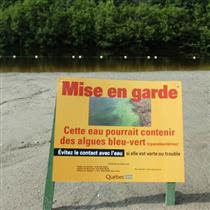 Toward a greener economy
Toward a greener economyScientists seek a more sustainable model for growth
By Moises Velasquez-Manoff| Staff writer
October 15, 2008 edition
The Christian Science Monitor
Market bubbles occur when goods are traded at prices that greatly exceed real value. They burst when they grow so bloated that they become unstable. The current economic turmoil, widely viewed as the worst since 1929, is one example of what can happen when the difference between market value and actual value becomes too great.
Environmentally minded economists have long warned that equally burstable ecological bubbles can occur if humanity lives beyond earth’s capacity to regenerate. The problem, they say, is that we’re addicted to economic growth. Mainstream economics assumes that the economy, the engine of modern civilization, can grow perpetually.
But if growth means ever-increasing consumption of natural resources (and it has, since the start of the Industrial Revolution 250 years ago), then it can’t continue indefinitely. Earth and its resources are finite.
Herman Daly, an economist at the University of Maryland’s School of Public Policy in College Park, says that humanity is already at or beyond the point where economic growth is counterproductive, where the environmental and social costs more than cancel the gains.
“So-called ‘economic’ growth already has become uneconomic,” Professor Daly stated in a talk last spring. “The growth economy is failing.”
For some time, Daly and others have called for a rethinking and restructuring of our economy before nature restructures it for us. The notion of perpetual economic growth warrants scrutiny before it drives us over a cliff, they argue. The science of economics must be overhauled to better account for earth’s physical realities. Civilization won’t have to stop in its tracks, just shift emphasis, says Daly. The “steady state economy” he foresees emphasizes qualitative development over quantitative growth. “Growth is more of the same stuff,” he says. “Development is the same amount of better stuff.” MORE >>>






Aucun commentaire:
Publier un commentaire